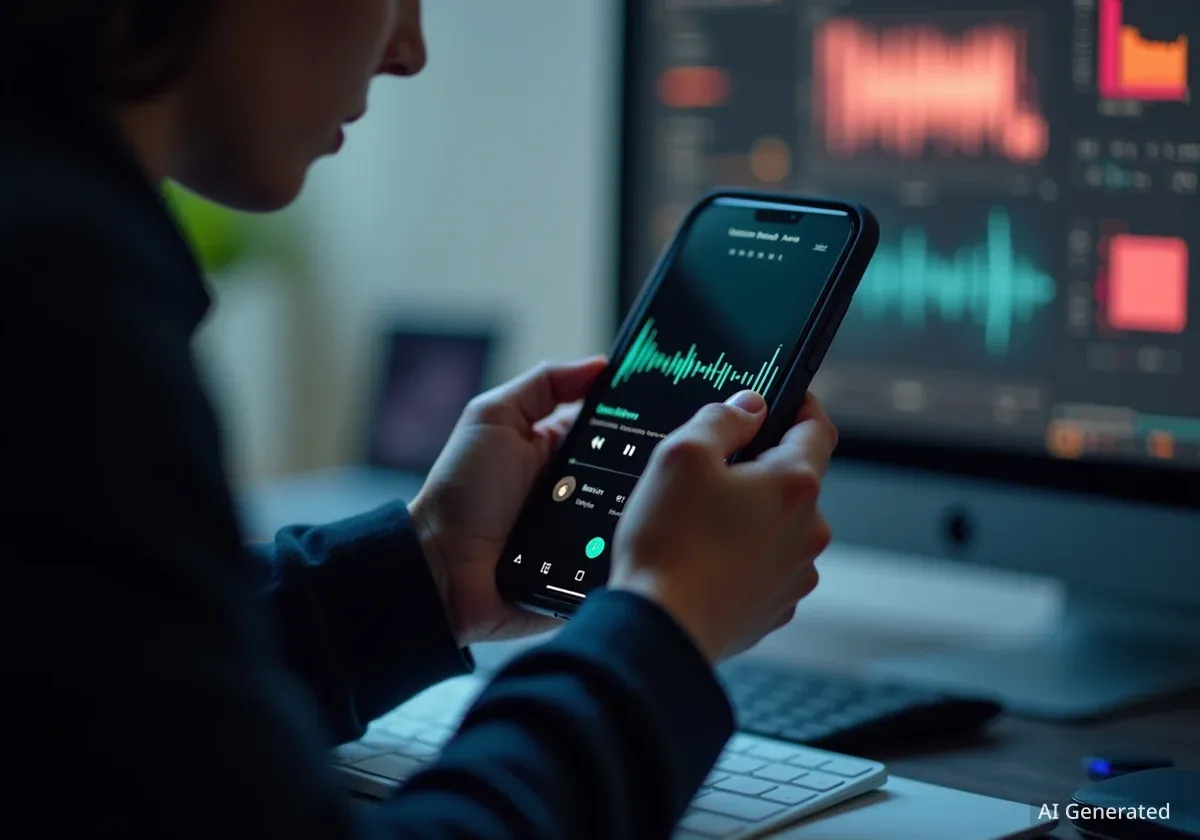YouTube has initiated a new program called YouTube Labs, allowing select Premium subscribers to test experimental features powered by artificial intelligence. The first feature under this initiative is an AI-powered host for the YouTube Music application, designed to provide listeners with contextual information and commentary.
Key Takeaways
- YouTube has launched "YouTube Labs," an experimental platform for Premium members to test new AI features.
- The first test involves AI-powered hosts in the YouTube Music app, offering stories, trivia, and commentary.
- This feature follows a similar concept introduced by Spotify with its AI DJ earlier in the year.
- Access to the initial test is limited to a select number of YouTube Premium subscribers based in the United States.
Introducing YouTube Labs
YouTube has officially announced the creation of YouTube Labs, a new initiative that serves as a testing ground for its latest artificial intelligence technologies. This program is structured to give users early access to cutting-edge tools and features before they are considered for a wider public release. According to the company, YouTube Labs is a "new way for users to take our cutting edge AI experiments for a test drive."
Participation in YouTube Labs is exclusive to YouTube Premium members. The initial rollout is limited, with the company opening sign-ups for a small number of participants located in the United States. This controlled approach allows YouTube to gather focused feedback and performance data in a real-world environment.
The concept is similar to Google Labs, the parent company's long-standing platform for showcasing and testing experimental projects. By creating a dedicated space for these trials, YouTube can innovate more openly while managing user expectations for features that are still in development.
What Are Experimental Labs?
Technology companies often use "Labs" programs to beta-test new features with a small, engaged user base. This strategy helps them identify bugs, assess user interest, and refine the product based on direct feedback before committing to a full-scale launch. It minimizes risk and ensures new features are more polished upon their official release.
The First Experiment: AI Music Hosts
The inaugural experiment available through YouTube Labs is the introduction of AI hosts within the YouTube Music streaming service. These virtual hosts are designed to augment the listening experience by providing dynamic, context-aware content alongside the music.
The primary function of these AI hosts is to deliver what YouTube describes as "relevant stories, fan trivia and fun commentary about your favorite music." This suggests the feature will act as a personalized radio DJ, offering insights into artists, albums, and individual tracks as they play. The goal is to create a more immersive and informative session for the listener, moving beyond simple playlist delivery.
While technical details on the underlying AI model have not been disclosed, such a feature would likely analyze a user's listening history and the specific track being played to generate relevant commentary. This could include information about a song's production, its cultural impact, or biographical details about the artist.
Personalization in Music Streaming
Music streaming services rely heavily on algorithms for personalization. In 2023, a significant portion of music discovery on major platforms was driven by AI-curated playlists and recommendations. The introduction of AI hosts represents the next step in this evolution, moving from passive curation to active, narrated experiences.
Competitive Landscape and Industry Trends
YouTube Music is not the first major platform to explore the concept of an AI-powered host. Earlier this year, competitor Spotify launched its own "AI DJ," a feature that provides spoken commentary between songs and curates a personalized music stream. Spotify's DJ uses a synthetic voice modeled on one of its employees to create a more human-like radio experience.
The move by YouTube indicates a growing trend among streaming services to differentiate their offerings through advanced AI integration. As music catalogs become increasingly standardized across platforms, unique features like AI hosts can become a key factor in attracting and retaining subscribers.
The success of these features will likely depend on the quality and relevance of the AI-generated commentary. Users may embrace a feature that offers genuinely interesting facts and stories, but could be turned off by repetitive, generic, or inaccurate information. The limited test phase in YouTube Labs will be crucial for tuning the AI to meet user expectations.
YouTube's Broader AI Integration Strategy
The AI host experiment is part of a much wider push by YouTube to embed artificial intelligence across its entire platform. In recent months, the company has introduced several AI-powered tools aimed at both creators and consumers, signaling a significant strategic investment in the technology.
For content creators, YouTube has rolled out a suite of AI tools. These include features that can generate video ideas, create music soundtracks from simple prompts, and even turn spoken dialogue into a song. These tools are designed to lower the barrier to content creation and provide new creative avenues for its user base.
Other AI Applications on the Platform
Beyond creator tools, YouTube is also leveraging AI for platform governance and user experience improvements. The company has increasingly relied on AI systems for tasks like age verification on videos containing mature content. Additionally, YouTube is reportedly testing its own version of AI-generated summaries or "overviews" for videos, similar to the AI Overviews feature recently implemented in Google Search.
This multi-faceted approach demonstrates that YouTube views AI not just as a feature, but as a core technology that will reshape how content is created, moderated, and consumed on the platform. The experiments conducted in YouTube Labs will likely inform the future direction of these efforts for years to come.





